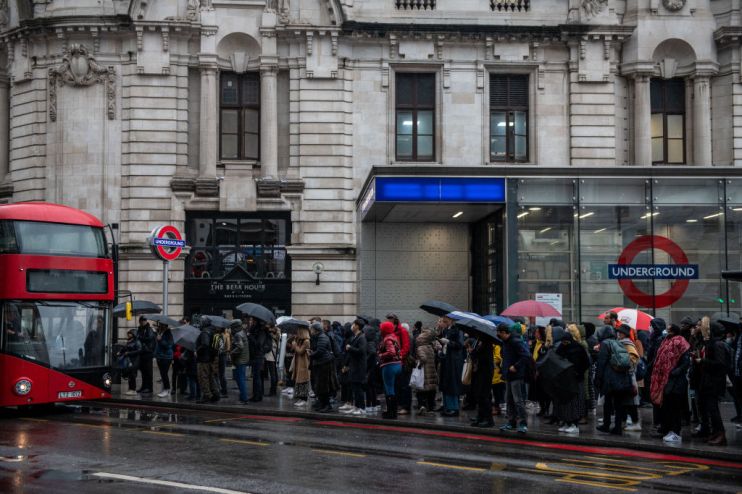Inflation deals record blow to UK workers’ living standards

Surging inflation has dealt a record blow to households’ wages in a sign the UK economy is tumbling into a sharp slowdown, official figures published today showed.
Brits’ pay accounting for consumer price index inflation dropped 4.1 per cent over the last three months, the biggest drop since records began in 2001, according to the Office for National Statistics (ONS).
Rising prices are cancelling out workers’ pay growth, meaning people are unable to buy the same quantity of goods and services.
In cash terms, regular pay jumped 4.7 per cent over the three months to June. But, minus the cost of living, spending power fell.
The ONS also said including bonuses, real pay fell at the fastest pace since the financial crisis, when banker payouts were slashed.
Britain is expected to drop into the longest recession since the financial crisis in the final months of this year, driven by consumer cutting spending in response to rising living costs.
New inflation figures released tomorrow are forecast to rise to a new 40-year high of 9.8 per cent.
The Bank of England thinks the cost of living will top 13 per cent in October when household energy bills may jump to over £3,500 from around £1,900.
Workers’ pay packets are being “dwarfed by inflation,” Yael Selfin, chief economist at KPMG UK, said, adding no relief is coming down the line soon.
“The bad news for employees is that real pay growth is unlikely to return to positive figures for some time,” she added.
Experts also said today’s figures showed predictions the UK is in the teeth of a wage-price spiral are overblown.
“The average worker continuing to see their pay fall in real terms is at odds with concerns about the possibility of a wage-price spiral in the UK,” Martin Beck, chief economic adviser to the EY Item Club, said.
Demand for staff has outstripped the number of available workers for months, putting upward pressure on wages.
However, vacancies fell for the first time since the early months of the pandemic, suggesting the jobs market is loosening.
High inflation has been driven by Russia’s invasion of Ukraine disrupting the global energy market and a resurgence in demand after the Covid-19 unlocking.
Chancellor Nadhim Zahawi said the government “ cannot completely shield everyone from these global economic shocks”.
Unemployment remained broadly unchanged at a historic low of 3.8 per cent.